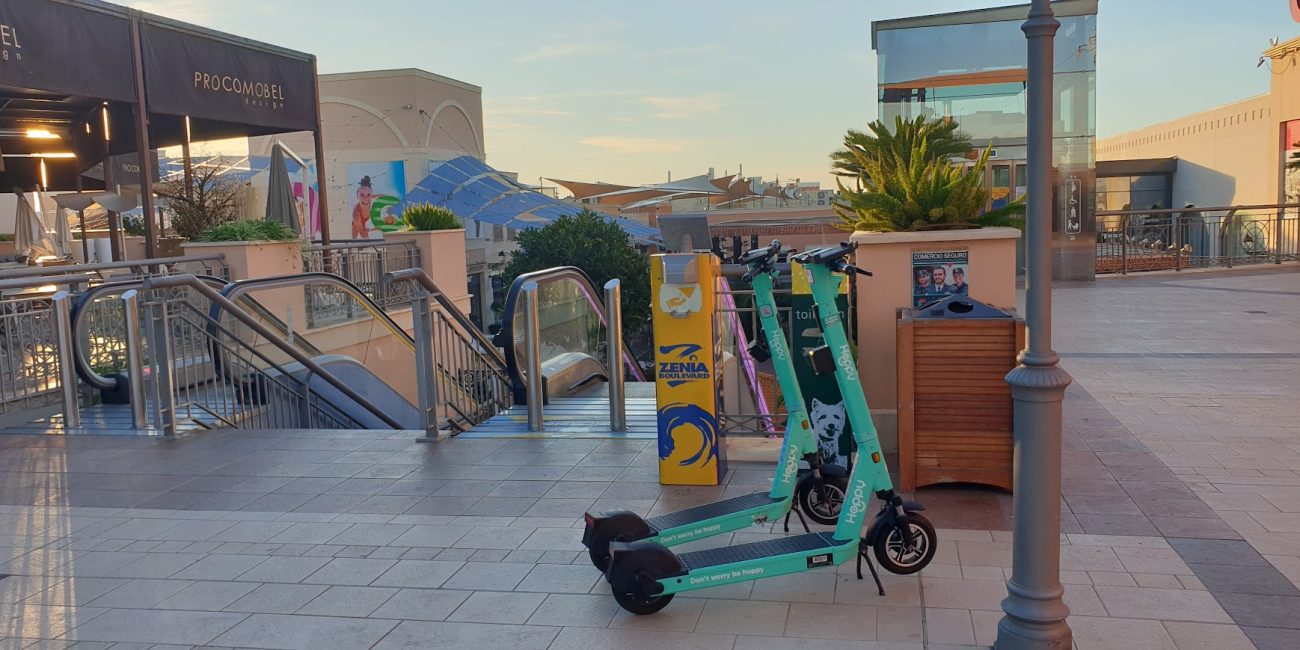A single company will now handle the rental of electric scooters in Orihuela Costa. This service has been disorganised on the Orihuela coast until now, and the Local Police have even had to take hundreds of these vehicles from companies that rented them without permission, since the authorisations were renewed for months.
The City Council has given MGC Clean Energy a four-year contract worth 164,800 euros. The company will have to pay the Council 41,200 euros per year (not including VAT), which is more than the 34,366 euros that was in the tender. This amount was 40% of the gross profit after the difference between the cost (456,332 euros) and the expected profit (542,250 euros) was calculated.
It took more than 10 months to award the service contract because the bid was unusually low. The successful bidder’s bid includes user identification through an app. They will meet with the local administration in the coming days to set up the service.
Their fleet is less than two years old, which is another reason they won the contract. The tender requirements said that 20% of the vehicles had to be no more than three years old, and 80% had to be brand new.
Matías Ruiz’s Heritage Department put this contract out to bid “to improve urban mobility.” They said that “because of its extensive urban configuration and the long distances that exist between different urbanisations and the points of greatest tourist influx, such as the beaches, shopping centres, etc., it is necessary to make an agile, efficient, and eco-sustainable proposal for urban transport.”
To bring order to the chaos, the tender set up a total of 750 scooters in 120 parking spaces, although the final location may change depending on demand. The number of units can also be increased to 1,200 with prior justification. This service has also received constant complaints from residents about irregularities in its use, such as reckless driving due to speed or on sidewalks and leaving vehicles in places that make it hard for pedestrians to get to buildings.
They are also given out based on the time of year: low (300 scooters each month from January to March, November, and December), medium (450 from April to June and October), and high (750 from July to September).
The tender documents state where these authorised personal mobility vehicles can park. They must never be parked in a way that blocks pedestrians, street furniture, access to services, or the sides of buildings.
Duties
The winning bidder must have its own system, including staff, technical tools, and materials, to make sure that parking rules are followed all day long during the service’s operating hours.
The corporation will have to pick up cars that users have parked in the wrong areas during the day and make sure they are parked in the right spots.
The corporation is responsible for making sure that users park correctly, no matter what kind of contract it has with them or what fines or fees it may charge them for this reason.
If you break the rules about parking and traffic, you will face fines and other consequences for breaking the rules of traffic, road safety, and circulation.
The corporation must also have an insurance policy that covers all conceivable damages, including those that could happen to users, other people on public roads, and third parties in general, including public or private property. The minimum coverage must be 500,000 euros.
The usual size for parking spaces is 4.50 x 2.20 metres, and no sort of anchoring or attaching to the pavement is allowed. However, this may change depending on how much space is available on the public road and how many people want to park. There will be enough room for the scooters to be arranged in an orderly way in any case.
In addition, certain rules must be followed for maintenance, inspection, recharging (which must be done at night), repair, replacement, and development of the mobile app.









No Comment! Be the first one.